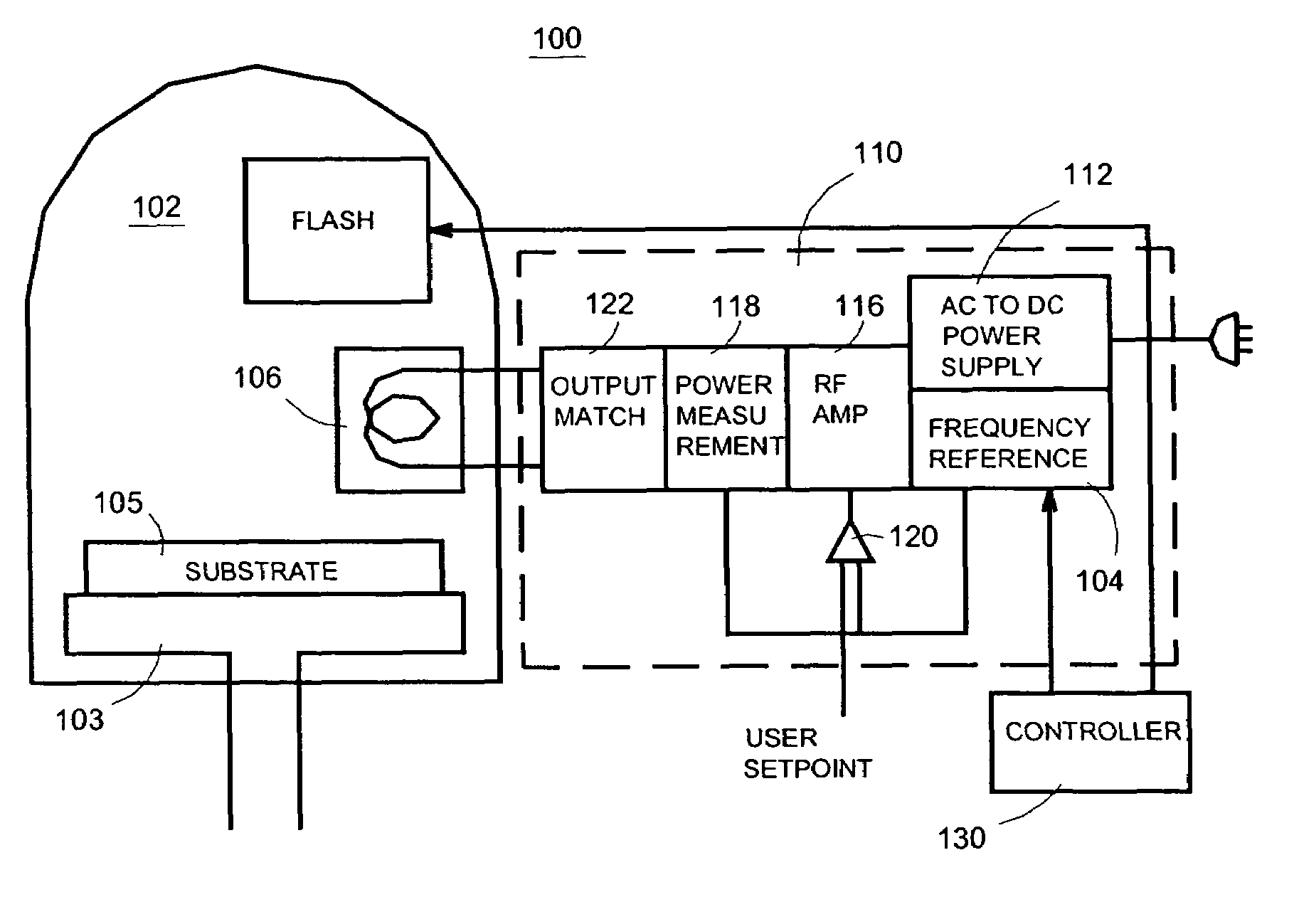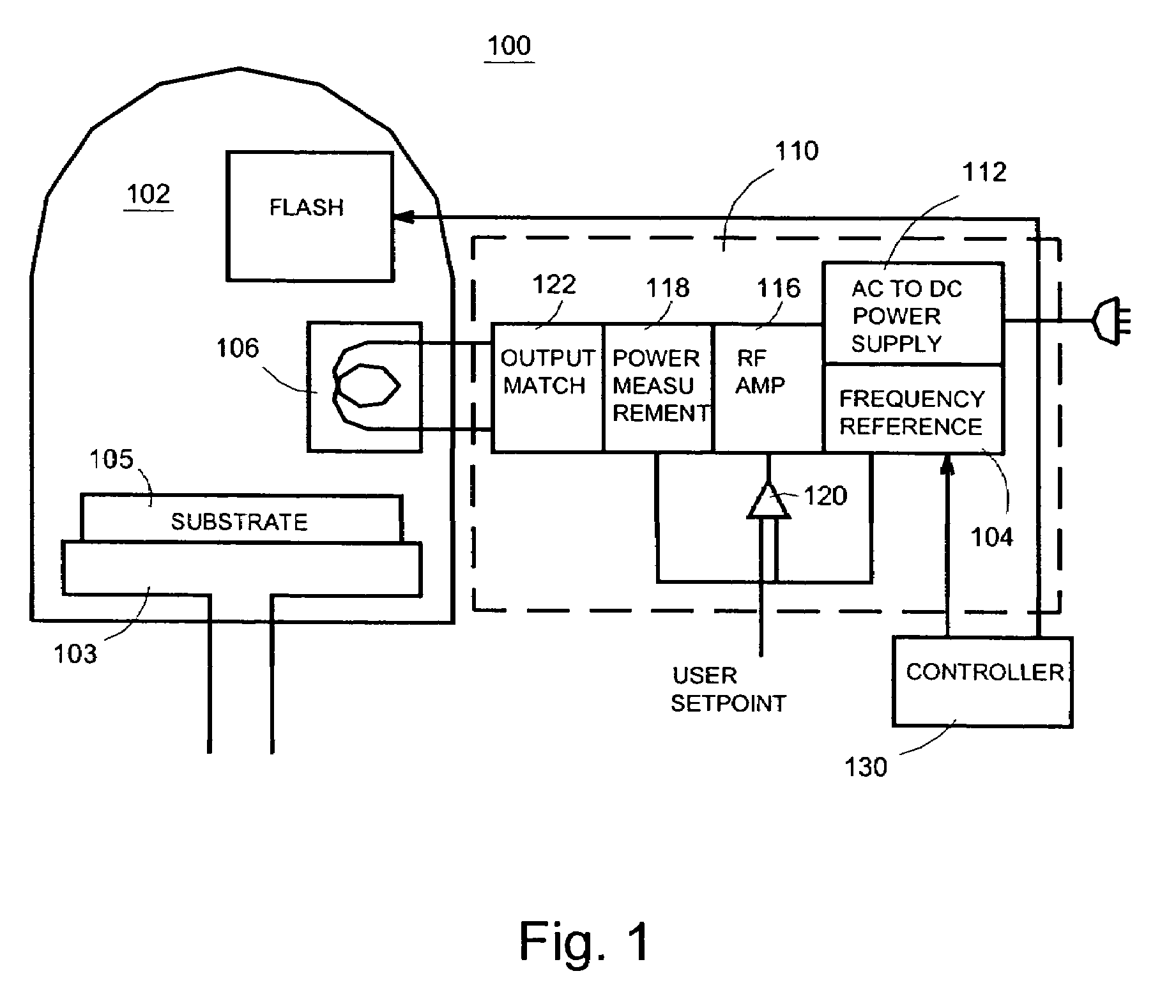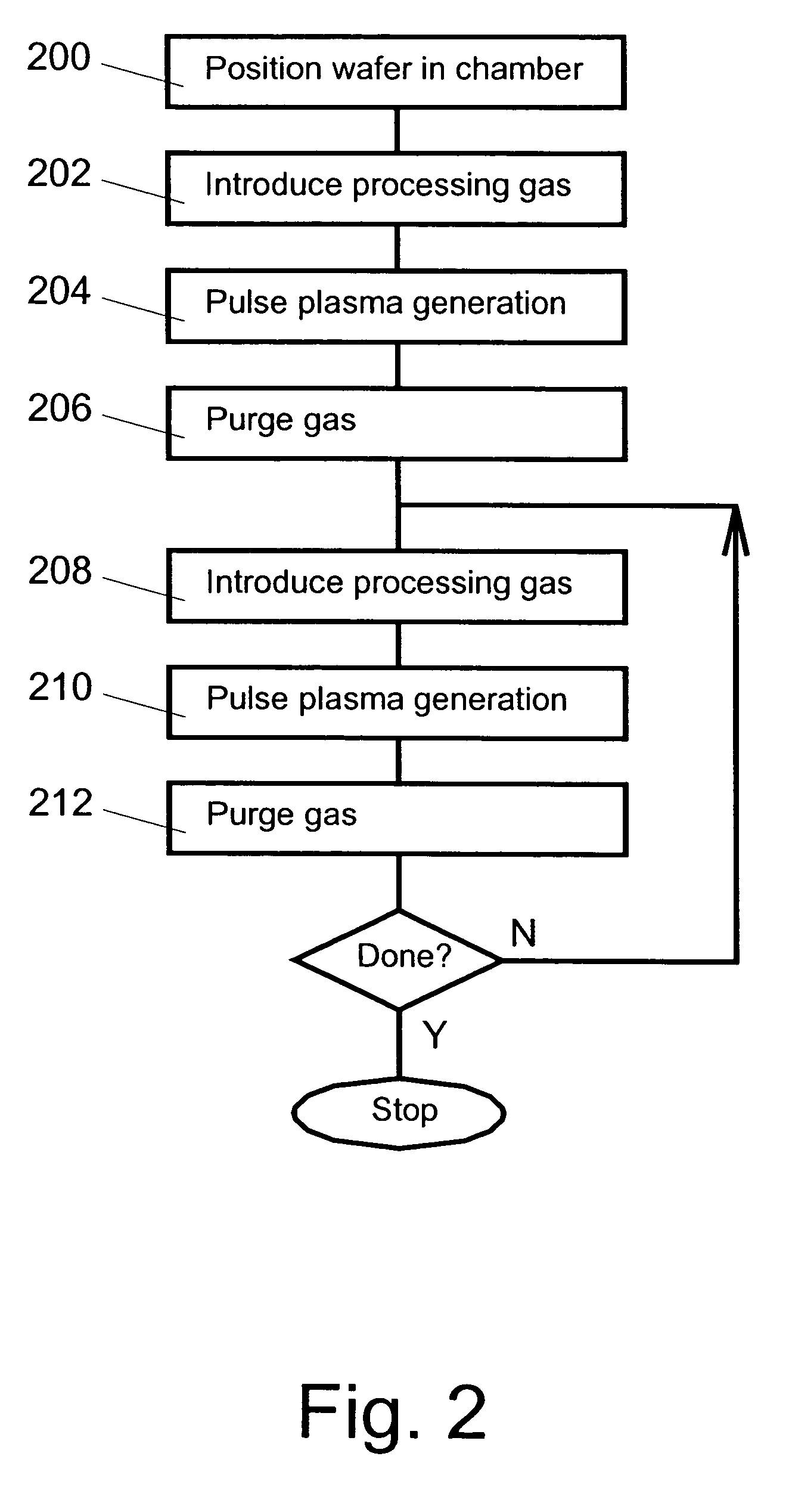Semiconductor processing system and method
a processing system and semiconductor technology, applied in the field of semiconductor processing, can solve the problems of etching reaction extent narrowly limited, load match operation incurs a predetermined time delay, and increase in ion temperature, so as to achieve superior properties, improve etching efficiency, and improve the effect of control thickness
- Summary
- Abstract
- Description
- Claims
- Application Information
AI Technical Summary
Benefits of technology
Problems solved by technology
Method used
Image
Examples
Embodiment Construction
[0022]FIG. 1 shows an exemplary pulsed processing system 100 with a processing chamber 102. The processing chamber 102 has a chamber body enclosing components of the processing chamber such as a chuck 103 supporting a substrate 105. The processing chamber typically maintains vacuum and provides a sealed environment for process gases during substrate processing. On occasions, the process chamber needs to be periodically accessed to cleanse the chamber and to remove unwanted materials cumulating in the chamber. To support maintenance for the process chamber, an opening is typically provided at the top of the process chamber that is sufficiently large to provide access to the internal components of the process chamber.
[0023]The chamber 102 includes a plasma excitation circuit 106 driven by a solid-state plasma generator 110 with fast ignition capability. One commercially available plasma source is the Litmas source, available from LITMAS Worldwide of Matthews, N.C. The generator 110 in...
PUM
 Login to View More
Login to View More Abstract
Description
Claims
Application Information
 Login to View More
Login to View More - R&D
- Intellectual Property
- Life Sciences
- Materials
- Tech Scout
- Unparalleled Data Quality
- Higher Quality Content
- 60% Fewer Hallucinations
Browse by: Latest US Patents, China's latest patents, Technical Efficacy Thesaurus, Application Domain, Technology Topic, Popular Technical Reports.
© 2025 PatSnap. All rights reserved.Legal|Privacy policy|Modern Slavery Act Transparency Statement|Sitemap|About US| Contact US: help@patsnap.com



